Security Council
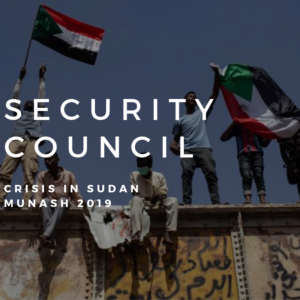
Topic: The Crisis in Sudan
Ongoing anti-government protests against Sudanese President, Omar al-Bashir, since 2018 culminated in a military coup and establishment of a military transitional government in April 2019. Despite the President’s removal, civilian protestors demanded that the military immediately institute a democratic representative government. Rising tensions resulted in the Khartoum massacre and conflict with civilians. Despite a recent agreement to transition towards a 2022 election, ongoing tensions continue instigation of further conflict and human rights abuses … [Read More]
Commission on the Status of Women
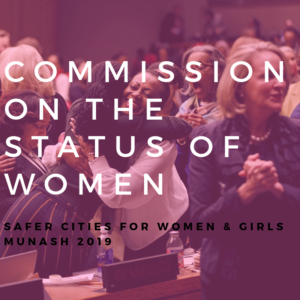
Topic: Safer Cities for Girls and Women
In line with the current priority theme of 2019, “social protection systems, access to public services and sustainable infrastructure for gender equality and the empowerment of women and girls”, the Committee will discuss how to make cities safer for women and girls. considering the growing shift towards more urban living spaces and away from rural areas, making cities a safer place for girls to grow up in a key priority. from ensuring safe and secure passage to and from educational institutions, to ensure safe public transport access, to facilitating access to sufficient housing, and health services, there are many aspects that must be considered. Furthermore, looking at the safety of women in cities means not only addressing the threats of violence from unknown sources but also contending with the work conditions women are placed under when they move out to the city for work … [Read More]
Historical Committee
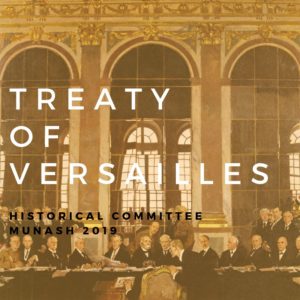
Topic: Treaty of Versailles Redux: Hearing the Unspoken Nations
The Treaty of Versailles was peace negotiations conducted after the atrocities of World War I. The peace treaty ended the war and comprised of terms that, to the authoring parties, would ensure those responsible for the conflict would be held accountable and those detrimentally affected be compensated. In line with the real events following WWI and the negotiations of the Treaty of Versailles, delegates will represent the Allied States and Germany at the negotiating table in 1918, but the “unspoken nations” or those minor players will be given a greater platform to express their views and contribute to the final treaty. Delegates will have to carefully ensure that they represent the interests of their nation-state as was the case in 1914 but are not strictly forbidden from incorporating the benefits of hindsight in formulating or influencing their positions and approaches to negotiating the Treaty… [Read More]
World Health Organisation
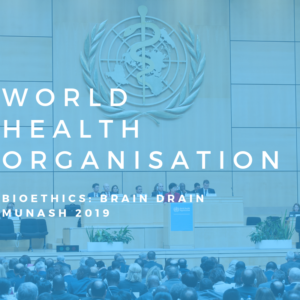
Topic: Bioethics – Brain Drain
From 2000-2010 the number of universities educated migrants to the g20 grew by 60% to 32 million people, according to the OECD. The rate at which highly-skilled individuals are leaving the least developed countries to make a new life abroad is surpassing the number of other types of migrants from these countries. Some development experts believe that the instance of “brain drain” may be detrimental to home countries as richer, more developed countries are removing skilled individuals who are integral to father development and a means to escape poverty. The committee is to discuss whether brain drain is an issue worth addressing in the international public health sphere, and if yes what solutions can be offered to alleviate the pressures it places upon the health systems of the least developed countries… [Read More]
Association of South-Eastern Asian Nations

Topic: Investment into Green Infrastructure
The committee will discuss how to render the vision of green infrastructure in the region a reality. Considerations for the committee would include issues of sustainable transport, regional connectivity, clean energy, and financing for related infrastructure projects. There are numerous aspects to be considered beyond just the types and funding of infrastructure. These include the provision of education; healthcare; economic development; rural connectivity and equal prosperity. Moreover, the issue is of particular importance to ASEAN members as climate change and global warming is set to impact them to a greater extent than some other regions of the world… [Read More]
Legal Committee
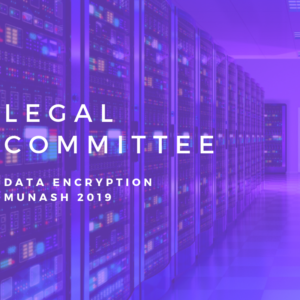
Topic: Data Encryption and Law Enforcement
The Sixth Committee will explore issues surrounding the rise of data encryption services that can hinder the effective prevention of crime by law enforcement and pose national security risks. These discussions can entail a wide variety of topics from the proliferation of services such as Whatsapp, the data used and maintained by social media platforms such as Facebook, and the very security and accessibility of IT technologies such as the 5G network. Where will the committee draw the line between privacy and law enforcement for the world to follow? … [Read More]
